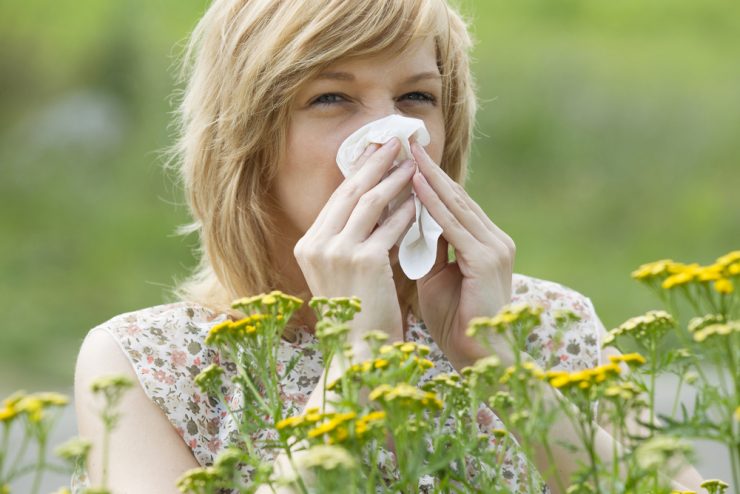The pollen season can spell misery if you are one of the 10 million people in the UK who suffer from hay fever.
Medical herbalist Gabriella Clarke tells you how to fight back the herbal way.
Spring has arrived, and whilst most of us welcome the start of the new season, for many who suffer from hay fever this can be a miserable time. Pharmacy and Supermarket shelves are lined with various antihistamines ranging from tablets, eye drops and nasal sprays. These drugs work by suppressing the body’s release of histamine but they can cause side effects such as drowsiness.
If you would prefer to try a more natural approach, here are a few herbal remedies that might help.
STINGING NETTLE (Urtica dioica)
The common nettle is considered by medical herbalists to be the choice for treating allergies. It contains natural antihistamines that dampen the immune response, therefore easing allergy symptoms, while its anti-inflammatory effects help to relief nasal congestion. A trial carried out in Florida USA showed that nettle contains constituents that affect the enzymes and receptors associated with the allergic response.
ELDERFLOWER (Sambuccus nigra)
Traditionally used to treat fevers and flu, elderflower also has a role to play in treating hay fever. It has a soothing effect on the mucous membranes and its astringent qualities help to dry up a runny nose and eyes. It is best combined with nettles and drunk as a tea throughout the hay fever season.
PLANTAIN (plantago lanceolata)
Plantain works really well when combined with nettle. It has a toning effect on the mucous membranes and is especially good at reducing excessive mucous production. It contains a constituent known as baicalein, which has anti-inflammatory and anti-allergy actions.
PINE BARK EXTRACT (aka Pycnogenol)
This potent antioxidant can be great for preventing hay fever and other allergies. You need to start taking it several weeks before the allergy season for best effects. It is particularly effective for birch pollen allergy.
CAMOMILE (camomilla recutita)
This common, gentle herb has anti-inflammatory and antihistamine properties. It is so widely available and makes a soothing and refreshing tea. For sore and irritated eyes, try applying cold wet camomile tea bags to the eyes for ten minutes. It is wonderful for combating itching, soreness and puffiness.
OTHER TOP TIPS
- Keep windows closed in the evening and early morning when the pollen count is at its highest
- Keep car windows closed
- Wear wraparound sunglasses to protect your eyes from pollen
- Try using a barrier cream around your nostrils to reduce pollen inhalation
- Vacuum and dust your home regularly; you may find short pile rugs are a better choice than thick carpets
- Give non-hay fever sufferers in the household the role of mowing the lawn!
For more information on hay fever and other allergies visit Allergy UK.























